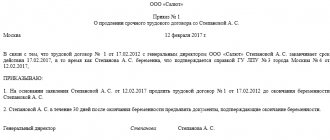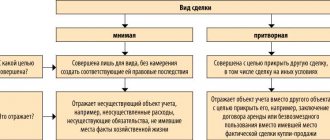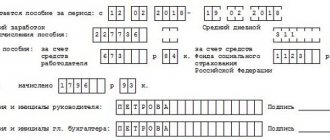Who should be given the solution and who should not?
In accordance with paragraph p. 5 of Government Decree No. 1752 dated December 30, 2018 (“Rules for registration of procurement participants in the Unified Information System”), when registering in the Unified Information System, the participant must provide a decision or a copy of the decision on consent to carry out large transactions or on the subsequent approval of large transactions based on the results of electronic procedures on behalf of the procurement participant - a legal entity or a foreign legal entity (or an accredited branch or representative office of a foreign legal entity) indicating the maximum parameters of the conditions of one transaction.
Part 6 of the participant registration rules describes the information and documents that a participant - an individual, including an individual entrepreneur - must provide. There is not and cannot be any decision on transactions on this list. An individual acts on his own behalf, represents his personal interests, therefore, in accordance with the law, he does not have a charter. He is personally responsible for all transactions, and his approval on paper is accordingly not required.
In accordance with paragraphs 1-2 of Art. 24.1. 44-FZ, requiring the provision of information or documents that are not established by Government Decree when registering participants is not allowed.
Thus, dear individual entrepreneurs and individuals. persons, except for a copy of all pages of the passport, you do not attach any documents to the UIS! Enter the missing information in the empty fields (telephone, etc.), an extract from the Unified State Register of Individual Entrepreneurs is generated automatically. The decision to approve (commit) a major transaction is not your document; you should not have it.
Agenda
The main part of the decision is the numbered agenda. Numbering is a prerequisite, even if there is only one item on the list. And in this case it will be the item “On approval of a major community transaction.” When describing the discussion, you must indicate in the document:
- Subject of the transaction. This can be either a tangible product or intellectual property.
- It is planned to buy, sell, rent or another type of action with a large-value product.
- The exact price of the transaction.
- On what terms is the transaction made?
- With whom it is planned to make a major transaction for the organization.
Each of the points in the text of the document must be discussed by the participants. At a minimum, there should be information about who put forward the proposal, its essence and arguments. If all other founders agree, then a unanimous decision is made. If not, then each meeting participant’s opinion is recorded in the minutes. These are the mandatory rules for maintaining these documents.
After each item there should be the phrase “Resolved” and the voting results on the issue raised. These results should be expressed as a percentage. At the end, you can make a note as to whether other questions were raised during the meeting.
In practice, there are situations when the transaction is delayed. In order not to drown in proceedings regarding the legitimacy of the transactions, government authorities have approved a time period during which the decision on a major transaction remains in force.
Automatically, the approval period for a specific transaction will be equal to one calendar year. Unless, of course, the approval period is specified in advance in the organization’s statutory documents or in the minutes of the founders’ meeting. Then the decision on this issue has already been made.
This is interesting: Perpetual lease agreement for non-residential premises in 2020 - sample, whether it is necessary to register, termination
Who makes the decision to approve a deal?
A transaction is considered major if it goes beyond the normal business activities of a legal entity and is associated with the purchase (or sale) of property. The procedure for approval of a transaction is regulated by law depending on the organizational form.
So, for example, in accordance with Federal Law No. 208 of December 26, 1995 “On Joint-Stock Companies,” a major transaction is carried out with the consent of the board of directors of the company or the general meeting of shareholders.
For state/municipal unitary enterprises, a major transaction occurs with the consent of the property owner (161-FZ).
Autonomous institutions, guided by 174-FZ, make a major transaction with the approval of its supervisory board.
Non-profit organizations are guided by 7-FZ. They can make a decision on a major transaction only with the prior consent of the body that exercises the functions and powers of the founder of the budgetary institution.
Well, limited liability companies are guided by 14-FZ, according to which the decision on a major transaction is made by the general meeting of the company.
In addition to the relevant federal laws and regulations, the conditions for a major transaction may be specified in the constituent documents of a legal entity.
Do I need to approve a major transaction in a budget institution?
State employees, in turn, are burdened with additional obligations to the state, which means that the execution and implementation of a major transaction is somewhat different from the algorithm for commercial structures. But how to approve a major transaction in a budget institution?
The first difference is determining the size of the transaction, that is, calculating the maximum amount, starting from which the purchase will no longer belong to a simple category, but to a large transaction. Specific volumes have been determined for public sector employees. Thus, a large one is recognized as one whose value exceeds 10% of the book value of the property and assets of the institution, and its key content is the disposal of funds, the transfer of property (assets) for use or on collateral, or the complete alienation of assets and property.
Please note two key conditions:
- Not only one single purchase, but also several interrelated ones can be recognized as large.
- The cost limit may be lower if such a condition was specified in the constituent documents of the budget institution.
The book value of assets and, therefore, the 10% threshold for the value of a large transaction for each institution is determined on a separate basis. The data is generated on the basis of the institution’s annual financial statements for the previous year (data from the accounting balance sheet - line 410, column 10 f. 0503730).
So, for example, the book value of assets at the reporting date may be 500,000 rubles, and therefore, for this institution, any contract worth 50,000.01 rubles or more will be considered large. In other words, such an organization will have to coordinate literally every step with the founder.
If the operation meets the requirements specified above, then it cannot be carried out without appropriate approval from the founder. This is the second exceptional feature for state employees.
We invite you to familiarize yourself with Criminal liability for illegal connection to electrical networks
So, in order to obtain approval, you will need to send the appropriate package of documents to the body exercising the functions and powers of the founder. Please note that this body must be vested with the appropriate powers, otherwise the application for approval will have to be redirected to higher structures.
What should be included in the document?
In accordance with Art. 24.1. of the Law on the Contract System, the decision on the consent or approval of major transactions from a participant - a legal entity must necessarily contain the maximum parameters of the conditions of one transaction. In other words, this decision should include the phrase that the maximum amount for one transaction is “so many” rubles. And exactly how much is already decided by the authorized person or persons described above. If the transaction amount is lower than the NMCC, then the participant will either not be able to submit an application, or he will be further excluded from participation in this procurement.
Since for bidding it is not necessary to indicate in the document either the party to the transaction or the beneficiary, it makes no sense to include the minimum parameters of the terms of the transaction in this decision. Otherwise, you will have to provide “your approval” for almost every procedure. If this data is not available, then it is enough to attach this document once when registering in the Unified Information System, provided that the approved amount for the transaction is not lower than the initial contract price.
It is also worth noting that the decision on a transaction does not need to indicate the type of trading or electronic platform, as is often practiced by inexperienced participants.
In the minutes of the general meeting, in addition to the above, it is necessary to indicate the date and place of the meeting, directly the persons who were present, the agenda, the result of voting with the counting of votes.
The legislation does not have a uniform model for decisions on major transactions. Below are sample protocols and decisions on approval of transactions.
How to write an endorsement
The founder, in relation to his subordinate institutions, has the right to establish a different procedure for the coordination and approval of major transactions. Below we present the algorithm that applies to a budgetary institution subordinate to the Judicial Department under the Armed Forces of the Russian Federation.
The decision to approve a major transaction is made only by a special commission. To consider the issue of approval, the institution must send an application drawn up in a certain form (the form is approved by a representative of the founder).
The application must contain the following mandatory details:
- Subject, purpose, type, and amount (all positions are required).
- The expected date of concluding one or more related transactions.
- The deadline for fulfillment of the terms of a contract or several contracts by the parties.
- Sources of financing, as well as associated costs for its implementation.
- Security, if there is such a condition in the contract.
- List of property objects that will be transferred as collateral. The book value of such property as of the reporting date is indicated.
- The procedure by which a counterparty or counterparties will be selected for interrelated agreements and contracts. For example, a direct contract or competitive procedures.
- The name and registration details of the intended counterparty, which must be indicated in the application based on data on the market monitoring conducted.
- Other terms of the contract, if any.
- The total volume of accounts payable and receivable as of the date of application, including taxes, contributions, fees and other payments to the budget system.
- The book value of assets of a budgetary institution as of the last reporting date.
The prepared application must be signed by the head of the budgetary institution, as well as the chief accountant or other person entrusted with these powers. The finished document is sealed with the official seal of the organization.
Along with the application, the institution is required to provide supporting documents. These include:
- feasibility study;
- draft agreement on the implementation of a major transaction;
- motivated justification for the counterparty selected based on the market analysis;
- report on the assessment of the market value of the property (not older than 3 months from the date of approval of the report).
We invite you to familiarize yourself with Work in China for Russians, work in Shanghai, work in China for Belarusians and Ukrainians in Beijing and Tianjin
The commission reviews the received package of documents within 30 days. Please note that commission representatives have the right to request additional documentation and justification to confirm the circumstances and conditions.
The decision of the special commission can be not only approval or refusal to carry out a major transaction, but also other options. For example, an indication of a change in the essential terms of the contract, etc.
After 10 days from the date of execution of the contract, the institution must report to the founder in the prescribed form.
The head of the institution bears responsibility for carrying out a major transaction in violation of the procedure approved by the founder in relation to his subordinate institutions. In addition, such a transaction may be declared invalid.
For example, if the budgetary organization “Museum” enters into an agreement for the supply of equipment worth 10 million rubles, and the book value of the museum’s assets is 20 million rubles, then the founder has the right to invalidate the agreement.
Please note that the institution has the right to independently declare the transaction invalid in such a situation. However, according to the current legislation, the parties to an invalid transaction are required to return or reimburse all assets, money and property transferred in fulfillment of the terms of the contract.
What is a major transaction for an LLC and how to calculate it
There may be a corruption component here (when the director negotiates a large purchase from “his” supplier), and insufficient competence of the manager (when the supplier is not “his”, but not the most profitable, which only the owners know about, and the director, due to inexperience, is not suspects this).
When purchasing more than 30% of the shares of a PJSC in the manner regulated by Chapter XI.1 of Law No. 208-FZ, the buyer is obliged to send a public offer - an offer to purchase shares to other owners of securities. Moreover, the transaction price includes not only the price of the shares being purchased, but also the price of other shares that the buyer must try to buy back from the current owners.
When is such approval needed in the contract system?
Corporate website"','ERROR_INCLUDE_MODULE_ALLCORP_TEXT':'Error connecting the module "Aspro. Corporate website".
We decided to approve transactions on behalf of LLC “_____” based on the results of electronic procedures; the maximum price of one transaction should not exceed 100,000 (One hundred thousand) rubles. For contracts drawn up as a result of tenders, it is not necessary to register a counterparty.
By the end of 2020, everyone who wants to continue to participate in tenders held by municipal and government agencies must register in the Unified Information System. The decision to approve a major transaction is one of the documents required for this. How to compile it correctly and what amount to bet, read on.
It is worth remembering that an incorrectly completed decision to approve a major transaction is a reason to deny your company accreditation on the trading platform, which will require you to undergo re-accreditation again.
Drawing up a decision in this case is also not necessary. Moreover, if at the time of conclusion of the transaction there is no beneficiary as such, then his description can be skipped. These rules do not apply in cases where the founder of an LLC is only one person.
Conducting a major transaction requires approval from the owners of the organization. Without this, the court may declare it invalid, which threatens significant material damage to the parties to the concluded agreement. Which transactions are considered major and what is the procedure for their approval depends on the organizational and legal form of the legal entity.
Neither the Civil Code of the Russian Federation nor the Federal Law “On LLC” contains any indication of how long the decision actually made by the founder is. The opinion of the Plenum of the Supreme Arbitration Court is as follows: in the document confirming approval, you can include a condition on the period of its validity - in this case, only a transaction concluded during the specified period will be considered appropriately authorized.
Types and essence of major transactions
Today, there are several types of major transactions for each form of legal entity:
1. Major transaction for LLC. Its features:
- purchase or sale of material assets, the total price of which is more than 25% of the total property of the enterprise. The value of the LLC's property is determined based on information from the financial statements for the last 6-12 months.
- always associated with the alienation or purchase of company property;
— the procedure for conducting such transactions can be specified by the community. It can be supplemented or changed if necessary;
— such operations can be direct or represent a chain of interconnected transactions.
2. Major transaction for JSC. Its features:
- one or more operations on the market related to the purchase or sale of property (carried out directly or indirectly). The total volume of the transaction must be more than 25% of the total balance sheet value of the enterprise's assets. Such operations also include guarantees, pledges, loans and others;
— to calculate the indicator, the book price as of the last date of the reporting period is taken;
— major transactions cannot include operations that are related to the normal activities of the company - the placement of ordinary shares or other assets convertible into this type of shares;
— the charter of a joint-stock company may establish other cases when a transaction will be classified as large.
3. Major transaction for unitary enterprises. Its features:
— operations that are associated with the direct or indirect purchase (sale) of property in the amount of 10% or more of the authorized capital. In this case, the transaction value must be from 50 thousand minimum established salaries;
— the value of property is determined on the basis of financial statements (in case of alienation);
— the value of the property is determined based on the size of the seller’s price (when making a purchase).
Procedure for approving a major transaction
If an organization plans to make a transaction that falls under the concept of “major,” it is necessary to notify the owners of the LLC. At a general meeting, company participants discuss the feasibility of concluding a specific transaction, reject it or approve it by a majority.
If the company has a board of directors, approval of major transactions may be within its competence, which should be indicated accordingly in the LLC Charter.
But this opportunity is provided only for transactions in which the value of the transferred or acquired asset does not exceed half of the total value of the company’s property.
If a major transaction is approved by a majority, a corresponding document is drawn up, called a decision to approve the transaction.











